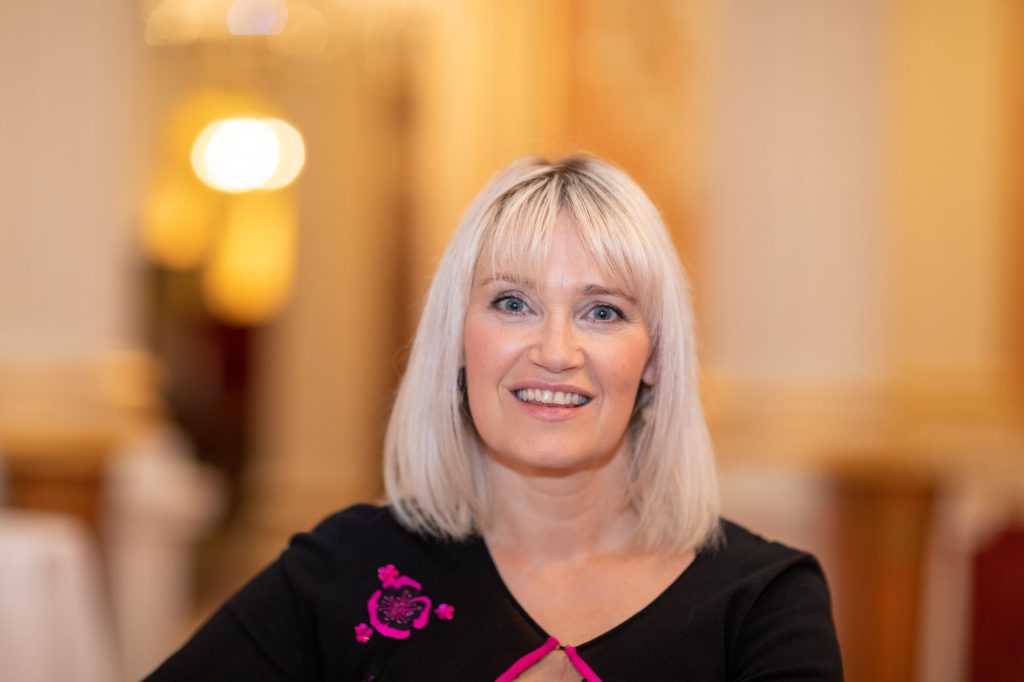We are hugely proud of the incredible business community we work with on a daily basis. Our new series, ‘A Coffee with’, gives us the opportunity to interview inspiring people in our network, asking them about their experiences in the world of work and what is most important to them.
In January, we spoke to Joanne Murphy, Chief Operating Officer at the Chartered Banker Institute.
How did you come to your current position?
I became the first Operations Director at the Chartered Banker Institute and was extremely proud to be the first female member of the Executive Team in November 2014, where I introduced a cultural and business transformation programme digitalising the Institute and improving its offering to members. In May 2018, I became the Institute’s Chief Operating Officer.
How would you describe your career?
My career started in television, but finance has featured for a large part of my life – almost 30 years.
Here’s a picture of my life in numbers:
I have held 13 different roles, including six secondments, a six-month career break and opted for role redundancy rather than redeployment twice.
I hold three professional qualifications.
I have had three employers (four if you count one of the organisations that was bought over).
I have moved sideways four times.
I have taken two years and nine months of maternity leave.
I have awesome parents, three children aged between 12 and 24 and one patient husband (I like to make the one husband point here, as my children’s age difference always raises eyebrows!).
I’m a big sister and still have my three closest school friends who frequently restore my sanity.
I have even had a couple of indecent proposals along the way!
What has been the most exciting point in your career?
Apart from commencing my current role, the most exciting point in my career was being presented with the top-secret Christmas schedule for ITV in 1990 – to be fair, this was a bit more exciting when there were only four television channels!
I had to research and predict the audience demographics to support advertising sales. This ignited my curiosity around people’s behaviour and the use of data to inform business decisions, a subject that continues to fuel my passion for people development and analytics today.
What lessons have you learned during your career?
I’ve gained a huge amount of experience throughout my career – here are my ten most important lessons:
- It is really important to speak up in meetings. Your life experience makes you different from everyone else in the room, and this uniqueness makes your views really valuable. At both GE and RBS, I was encouraged to voice my opinion. This has stood me in good stead; even when you have to surface the unsaid, you are supporting a transparent culture.
- Male leaders are key allies. In each of my roles, I have had a senior male ally as a Mentor – I’d include my husband in this. Without their support, I wouldn’t have really understood my potential or what was unique about who I am.
- Be a soundboard, not a noticeboard. Trust and honesty are critical traits in business and in life, as senior colleagues need confidants they can trust to bounce off sometimes unpopular views. I have never engaged in gossip or office politics; personally, I find it draining and unhealthy.
- Raise your hand for the high-visibility project – projects are a learning experience for everyone. Throughout my career, projects were a great way to develop new skills and learn more about other departments and roles. Each time I took part in a project, it opened up further opportunities for me, helped develop my commercial understanding and made me a flexible thinker. Remaining curious and open to experimentation are critical skills if you are going to thrive in the digital age.
- Always be yourself and be human. I need to be true and authentic to myself – that’s the core of who I am as a leader. Difficult decisions are much easier to make when you understand what you value and your ‘why’. Annoyingly, I still stress over little things, like whether to have caffeine or not each day, but that’s what makes me a human, not i-Robot.
- I’m the queen of reinvention: participating in learning opportunities and continuing to develop my expertise is more important than ever in this digital world.
- Demonstrate your professionalism. Invest not just in experience, but in gaining the external credentials to support recognition of your skills and knowledge. Each time I have evolved, I have enhanced my credibility by becoming professionally qualified – consider accelerated programmes such as our Chartered Banker by Experience to gain professional recognition.
- Everyone needs a support structure. The encouragement and support of my husband, parents and oldest friends has been critical at every new stage, particularly when I doubted myself – which was frequently!
- Grow your network. Our diversity, pay progression and ethnicity research highlights the importance of developing an external network and gaining recognition. Being a member of a professional body provides you with the framework to do this and the flexibility to engage with contacts in a way that works for you.
- And finally, switch off the inner voice questioning whether you should be in the room. Remember to reframe and understand the valuable contribution you make. Everyone suffers from imposter syndrome at times.
At Represent, we’re dialled in to an amazing network of inspiring business leaders. Want to work with Represent? Get in touch!


